
In this pivotal moment of Nigeria’s history, the dawn of a new presidency holds immense significance for Nigerians. Over the past eight years, Nigeria has weathered countless challenges, with the Naira’s value plummeting and a disheartening exodus of its vibrant youth.
Yearning for a rejuvenated nation, Nigerians crave a Nigeria where dreams flourish and aspirations thrive. To achieve this, they seek a leader who embodies their hopes and can transform their nation into the utopia they envision.
Such aspirations led a multitude of first-time voters to participate in the recent election, braving obstacles to cast their ballots for their preferred candidates. Yet, regrettably, the presidential election on February 25th was marred by irregularities, intimidation, and pockets of violence.
In the wake of these disheartening circumstances, numerous voices emerged, refusing to accept or congratulate the winner declared by INEC, including the presidential candidates of the Labour Party and the People’s Democratic Party.
Some Nigerians in their frustration, have gone as far as to contemplate renouncing their citizenship and severing ties with Nigeria should Tinubu remain in power.

Without the unwavering support of its people, Nigeria’s journey towards meaningful progress and transformation may prove arduous.
Recognizing the vital importance of understanding the expectations, hopes, and aspirations that echo through the streets, Eventville Magazine took to the bustling streets of Abuja. In an attempt to capture the spirit of the nation, we engaged with citizens from all walks of life, delving into their candid reactions to the upcoming inauguration.
Join us as we embark on a riveting journey, uncovering the very essence of the Nigerian people, and revealing their unyielding spirit amidst a time of controversy and transition.
Hopes and Aspirations of Nigerians in this New Administration
These voices resonate with the essence of the nation, reflecting the sentiments echoing through the streets.
Akinola Akintunde, a Political Analyst and business owner in Wuye, when asked about his thoughts on the new president, Akin expressed cautious optimism. He stated, “As an analyst, I believe it is essential to give any new leader a chance to prove themselves. While we cannot dismiss the past entirely, we must also recognize the potential for positive change. I am hopeful that the new president will prioritize issues such as corruption, security, and economic growth.”
While Akinola remains hopeful about the new administration, Funmi, a small business owner in Utako Modern Market, emphasizes the importance of economic stability for her business. She expresses, “As a small business owner, my primary concern is having a favorable environment for growth and entrepreneurship. I sincerely hope that the new president will implement policies that empower businesses, streamline bureaucratic processes, and foster investment. If the president fulfills these expectations, I am more than willing to lend my support to their leadership.”
To provide a balanced perspective, the examination also involved the opinion of Yusuf Bukar, a Student Activist at the University of Abuja. Known for his active participation in student movements, Yusuf expressed his skepticism towards the new administration. He stated, “We have witnessed promises made by previous leaders that ultimately went unfulfilled. It is essential for the new president to showcase a genuine dedication to empowering the youth, improving education, and eradicating corruption. We require tangible actions and effective policies, not mere rhetoric. Until we see concrete steps in these areas, I will maintain a cautious stance.”
You’d like to know if a teacher expressed a similar sentiment as the student. Alex Noro, a teacher, was also engaged and shared her opinion on the newly sworn-in president during the interview. She made a shocking, but not entirely surprising, revelation. Alex stated, “The new president is not actually the people’s choice, but he was inaugurated as the President, and he has the mandate of the people to live up to expectation. Knowing it’s not a popular choice, but as Nigerians, guided by the laws governing us, we hope to work with him and create a better Nigeria for everyone.”
Many Nigerians fault the electoral process that brought President Tinubu to power. Some are still waiting for a court case outcome, while others have reluctantly accepted him as president, believing there is no way to unseat him now.
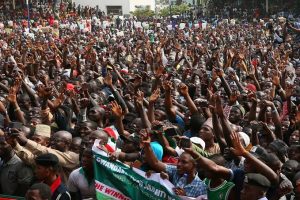
Mr. Gabriel, an Abuja based political analyst, also shared his perspective on the acceptability of the new president. He stated, “The 2023 elections have concluded, despite the shortcomings and numerous cases of electoral malpractices such as ballot paper snatching, vote buying, and voter intimidation. Nigeria has inaugurated its new president, Bola Ahmed Tinubu. Even if I did not vote for him or I am dissatisfied with the election process, I must acknowledge and accept him as my president until the courts make a different decision.”
Yusuf, the agro-businessman, shared his expectations, saying, “Agriculture is the backbone of our economy. I hope the new president invests in modern farming techniques, provides subsidies, and creates opportunities for farmers like me. If the agricultural sector thrives under their leadership, I will gladly support the president.”
Nneka Ahanonu, a civil servant, expressed her thoughts and expectations regarding the new government. She highlighted the significance of effective governance and accountability within Nigeria’s public sector. Nneka voiced her concerns, stating, “A comprehensive reform is needed in Nigeria’s public sector. If the new president can prioritize transparency, meritocracy, and take strong measures against corruption, it will positively impact the lives of many Nigerians. While I remain cautiously hopeful, I expect tangible changes to become evident over time.”
The public opinion on Nigeria’s new president reflects a mix of cautious optimism, skepticism, and expectations for positive change. The individuals interviewed share their concerns and hopes, emphasizing the need for tangible actions in key areas such as corruption, security, economic stability, youth empowerment, governance, and agricultural development. While some express willingness to support the new leadership, others remain cautious, waiting to witness substantial progress before fully embracing the president’s tenure.


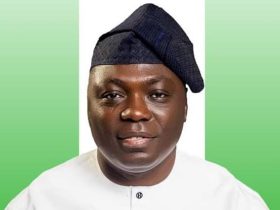

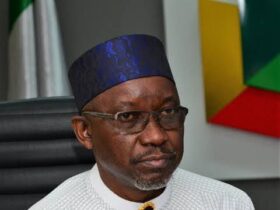
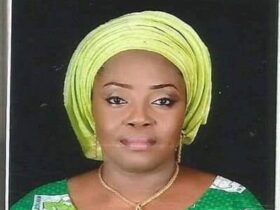
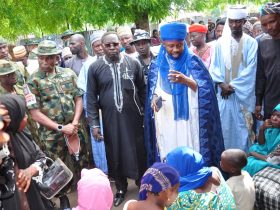
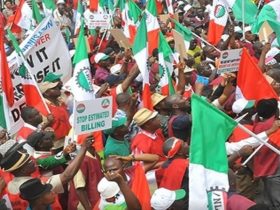

Leave a Reply